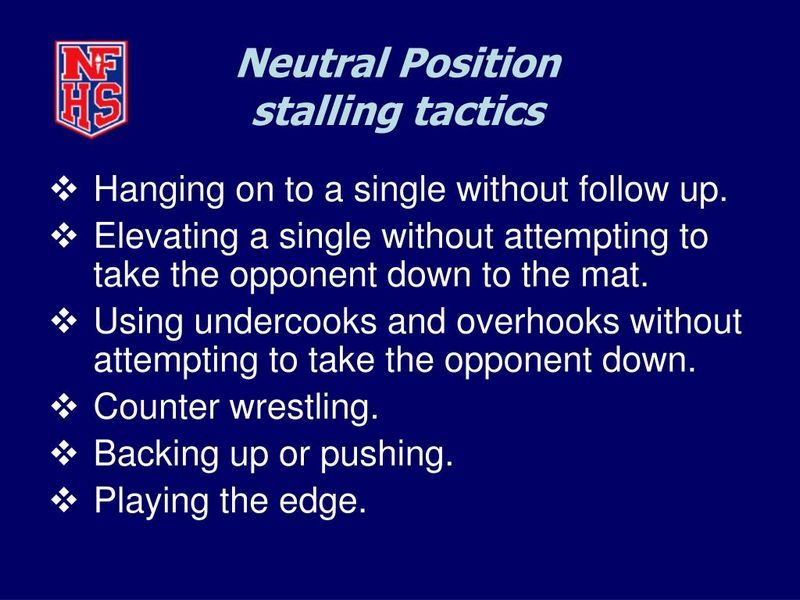
Stalling Tactics Used by Insurance Companies and How to Address Them.
Insurance companies can often resort to various tactics to stall the process and delay settling claims. It is important to address these tactics head-on to ensure that you receive the compensation you deserve. Understanding these tactics can empower you to fight back against insurance companies’ stalling techniques.
1. Denying Claims Without Proper Investigation
Insurance companies may deny your claim without thoroughly investigating the facts. It is crucial to gather evidence and documents supporting your claim to refute their denial and demand a fair evaluation.
…
Denying or Delaying Claims
One of the most common stalling tactics used by insurance companies is denying or delaying claims. When policyholders file a claim, it is the responsibility of the insurance company to investigate and address the claim in a timely manner. However, some companies use various tactics to avoid paying out the claim or to delay the process as much as possible.
Insurance companies often deny claims by using tactics such as claiming the policy doesn’t cover the specific loss or damage, stating that the policyholder failed to provide sufficient documentation or proof of the claim, or arguing that the claim falls under an exclusion in the policy. These tactics can be frustrating for policyholders who are already dealing with the stress and financial burden of a loss or damage.
In addition to denying claims outright, insurance companies may also use delaying tactics to prolong the claims process. They may request additional documentation or evidence repeatedly, causing the policyholder to have to gather and submit the same information multiple times. They may also conduct lengthy and unnecessary investigations, or simply fail to respond to the claim in a timely manner.
To overcome these stalling tactics and ensure the insurance company addresses your claim efficiently, it is important to be knowledgeable about your policy and its coverage. Keep detailed records of all correspondence and conversations with the insurance company, including dates and names of representatives spoken to. Respond promptly to any requests for documentation or evidence, and consider seeking legal advice if you believe the insurance company is acting in bad faith.
| Denying the claim based on policy exclusions | Review your policy carefully and consult with legal professionals if necessary |
| Requesting repeated documentation or evidence | Keep organized records and promptly provide requested information |
| Conducting unnecessary and lengthy investigations | Stay informed about the progress of the investigation and seek legal advice if necessary |
| Failing to respond to the claim in a timely manner | Follow up with the insurance company and escalate the issue if needed |
Requesting Unnecessary Documentation
One of the common stalling tactics used by insurance companies is requesting unnecessary documentation. They may ask for a variety of documents that are not relevant to your claim in order to delay the process and frustrate you.
Insurance companies often require extensive documentation to support your claim, but they will sometimes go beyond what is necessary. They may ask for duplicate copies of documents you have already provided or request excessive amounts of information that is not directly related to your claim.
Dealing with these requests can be time-consuming and frustrating. It is important to stay organized and keep records of all the documents you have already provided. If the insurance company requests unnecessary documentation, politely inquire about why it is necessary and if there are alternative documents that can be provided instead.
One way to overcome this stalling tactic is to familiarize yourself with your insurance policy and the specific requirements for filing a claim. By understanding what documents are typically required, you can ensure that you provide all the necessary information upfront, reducing the chances of the insurance company requesting unnecessary documentation.
Additionally, if you believe the insurance company is deliberately stalling by requesting unnecessary documents, you can escalate your concerns to a supervisor or file a complaint with the appropriate regulatory agencies. This can help hold the insurance company accountable and may expedite the resolution of your claim.
In summary, requesting unnecessary documentation is a stalling tactic commonly used by insurance companies. By staying organized, understanding your policy requirements, and advocating for yourself, you can overcome this tactic and ensure your claim is processed in a timely manner.
Requiring Multiple Inspections
One of the common stalling tactics used by insurance companies is to require multiple inspections before addressing a claim. This tactic is often employed to delay the claims process, hoping that the policyholder will give up or settle for a lower payout.
Insurance companies may claim that multiple inspections are necessary to assess the damage accurately or to verify the validity of the claim. However, in many cases, these inspections serve no real purpose other than to create additional hurdles for the policyholder.
Here are some ways to overcome this tactic:
| 1. Document the initial damage | Before the first inspection, make sure to thoroughly document the damage with photographs and written descriptions. This will provide evidence of the initial state and may help expedite the claims process. |
| 2. Request a detailed explanation | If the insurance company insists on multiple inspections, ask for a detailed explanation of why each inspection is necessary. This will put pressure on them to provide a legitimate reason for the delays. |
| 3. Involve a public adjuster | A public adjuster is an independent insurance professional who can advocate for your interests. Hiring a public adjuster can help ensure a fair inspection process and prevent unnecessary delays. |
| 4. Know your rights | Familiarize yourself with your insurance policy and your rights as a policyholder. If the insurance company’s multiple inspections are in violation of your policy terms, you may have grounds to challenge their tactics. |
By being proactive and informed, you can overcome the stalling tactics used by insurance companies regarding multiple inspections. Remember to document the damage, request explanations, involve a public adjuster if necessary, and assert your rights as a policyholder.
Transferring Claims from Adjuster to Adjuster
Another stalling tactic commonly used by insurance companies is the constant transferring of claims from one adjuster to another. This tactic is designed to frustrate policyholders and delay the resolution of their claims. When a claim is transferred from one adjuster to another, it often means that the insurer is trying to avoid paying for the damages or injuries covered by the policy. This can be especially problematic when the policyholder is facing mounting medical bills or property damage expenses.
Insurance companies may transfer claims for various reasons. One of the main reasons is to create confusion and make it difficult for policyholders to keep track of their claims. By constantly changing adjusters, insurance companies hope that policyholders will become frustrated and give up on pursuing their claims. This tactic can be particularly effective when a claims process is complex and involves multiple parties, such as in cases of car accidents or property damage.
To overcome this stalling tactic, policyholders need to be persistent and keep detailed records of their interactions with the insurance company. It is important to document the names of the adjusters involved, the dates and times of phone calls or emails, and any promises or commitments made by the insurance company. This documentation can be crucial in holding the insurance company accountable and ensuring that the claim is handled promptly and fairly.
| Stalling Tactic | Constant transferring of claims from one adjuster to another |
| Objective | To frustrate policyholders and delay the resolution of their claims |
| Impact | Creates confusion and makes it difficult for policyholders to keep track of their claims |
| Counteraction | Be persistent, keep detailed records, and hold the insurance company accountable |
Repeatedly Asking for Additional Information
Another common stalling tactic used by insurance companies is repeatedly asking for additional information. They may continuously request more documentation or evidence, dragging out the claims process and delaying any potential payout.
Insurance companies may ask for unnecessary details or duplicate information that has already been provided. They may claim to need additional documentation to assess the validity of the claim, but this can often be a way to wear down the claimant and discourage them from pursuing their claim further.
If you find yourself in this situation, it’s important to stay organized and keep track of all the information you have already provided. Respond promptly and clearly to their requests, providing any missing information and clarifying any confusion.
Consider keeping copies or records of all your communications with the insurance company, including emails and letters. This can help you provide evidence of their repeated requests and help support your case if necessary.
It may also be helpful to familiarize yourself with your insurance policy and the specific requirements for documentation. By knowing what is expected, you can preemptively provide the necessary information and avoid any unnecessary delays.
Remember, insurance companies may use these stalling tactics to try and frustrate claimants and discourage them from pursuing their rightful compensation. Stay persistent, document everything, and consider seeking legal advice if you suspect bad faith practices from the insurance company.
Claiming Pre-existing Conditions
When it comes to insurance claims, one common tactic used by insurance companies is to claim that the condition you are filing a claim for is pre-existing. This is a way for insurance companies to stall the claims process and avoid paying out the full amount owed to you.
In order to address this stalling tactic, it is important to understand what a pre-existing condition is and how insurance companies may try to use it against you. A pre-existing condition is defined as a medical condition that existed prior to obtaining insurance coverage. Insurance companies may use this as a reason to deny or limit coverage for certain claims.
However, it is important to note that insurance companies are required by law to clearly define what constitutes a pre-existing condition and how it affects coverage. They cannot simply use the term “pre-existing condition” as a blanket excuse to deny or limit claims. Insurance policies should have specific language that outlines what conditions are considered pre-existing and what is exempt.
If you believe that an insurance company is unfairly denying or limiting your claim based on a pre-existing condition, there are steps you can take to overcome this tactic.
| 1. Review your policy: | Take the time to carefully review your insurance policy to understand what is considered a pre-existing condition and what is exempt. Make sure the insurance company is adhering to the terms outlined in the policy. |
| 2. Provide evidence: | Gather any medical records, doctor’s notes, or other documentation that proves the condition in question was not pre-existing. This evidence can help support your claim and refute the insurance company’s stalling tactic. |
| 3. Seek legal advice: | If you believe the insurance company is acting in bad faith or unfairly denying your claim, it may be beneficial to seek legal advice. An attorney specializing in insurance law can help you navigate the claims process and ensure your rights are protected. |
| 4. File a complaint: | If you have exhausted all other options and believe the insurance company is acting unethically, you can file a complaint with your state’s insurance department or regulatory agency. They can investigate the matter and potentially hold the insurance company accountable for their actions. |
Remember, insurance companies have a legal obligation to handle claims in good faith and to adhere to the terms outlined in their policies. Do not let their stalling tactics discourage you from pursuing the coverage you are entitled to.
Challenging the Validity of Medical Treatments
Insurance companies can often employ various stalling tactics when it comes to covering or approving medical treatments. One common tactic is challenging the validity of the proposed treatment.
Insurance companies may question the necessity or effectiveness of certain medical treatments in order to delay or deny coverage. They may argue that alternative treatments are available or that the recommended treatment is not backed by sufficient scientific evidence.
When faced with such challenges, it is important to gather and present strong evidence supporting the medical treatment’s validity. This may include scientific studies, expert opinions, and documented success rates of similar treatments.
Scientific studies: Provide research articles or studies that demonstrate the effectiveness and safety of the proposed medical treatment. These studies should be from reputable sources and peer-reviewed journals.
Expert opinions: Seek the opinions of medical professionals who specialize in the relevant field. Their expertise can help validate the medical treatment and counter any doubts raised by the insurance company.
Success rates: Present data or case studies that show the positive outcomes and benefits of the proposed treatment. This can include statistics on similar cases or testimonials from patients who have benefited from the treatment.
By providing strong evidence and countering any doubts raised by insurance companies, individuals can increase their chances of overcoming delay tactics and gaining coverage for necessary medical treatments.
Hiring Independent Medical Examiners
When dealing with insurance companies, it is important to be aware of their stalling tactics. One tactic commonly used by insurance companies is to require an independent medical examination (IME) before processing your claim. This allows the insurance company to obtain a medical opinion that aligns with their interests.
However, it is crucial to understand the role of independent medical examiners and how to navigate this process effectively:
- Research reputable companies: When hiring an independent medical examiner, it is essential to research and select a reputable company. Look for established companies with a track record of conducting fair and unbiased examinations.
- Verify their credentials: Before hiring an independent medical examiner, verify their credentials and qualifications. Make sure they are licensed, experienced, and knowledgeable in the relevant field of medicine.
- Consult with your attorney: It is advisable to consult with your attorney before scheduling an independent medical examination. They can provide guidance on how to protect your rights and ensure that the examination is conducted fairly.
- Prepare for the examination: Prior to the examination, gather all relevant medical records and documentation to present to the independent medical examiner. This will help ensure that they have a comprehensive understanding of your condition and can provide an accurate assessment.
- Attend the examination: It is important to attend the independent medical examination in person. This allows you to actively participate, provide additional information, and address any concerns or discrepancies that may arise.
- Ask questions: During the examination, don’t hesitate to ask questions or seek clarification on any issues discussed. It is important to have a clear understanding of the examiner’s findings and how they may impact your claim.
- Review the report: After the examination, carefully review the independent medical examiner’s report. If you notice any inaccuracies or discrepancies, discuss them with your attorney and consider obtaining a second opinion.
- Take legal action if necessary: If you believe that the independent medical examination was biased or unfair, consult with your attorney to determine if legal action is warranted. They can help you navigate the legal system and advocate for your rights.
By following these guidelines and hiring reputable independent medical examiners, you can overcome the stalling tactics used by insurance companies and ensure a fair evaluation of your claim.
Questioning the Severity of Injuries
One of the common stalling tactics used by insurance companies is to question the severity of injuries. This tactic is often employed in order to delay or deny a claim, as insurance companies know that the longer they can stall, the more likely it is that the claimant will give up or settle for a lower amount.
When insurance companies question the severity of injuries, it can be incredibly frustrating for the claimant. They may be dealing with significant pain and suffering, medical bills, and lost wages, and the insurance company’s tactics can further exacerbate their already difficult situation.
However, it is important for claimants to address this tactic head-on in order to overcome it. One way to do this is to gather as much evidence as possible to support the severity of the injuries. This can include medical records, doctor’s notes, diagnostic test results, and testimonies from witnesses.
| Questioning the Severity of Injuries | Gather evidence to support the severity of injuries, such as medical records and testimonies from witnesses. |
| Delaying Claim Processing | Keep track of all communication and follow up regularly to ensure timely processing of the claim. |
| Denying Coverage | Review the policy carefully and gather evidence to support the claim’s eligibility for coverage. |
| Offering Low Settlements | Seek legal advice and negotiate for a fair and reasonable settlement amount. |
By addressing the tactics used by insurance companies and taking proactive steps to overcome them, claimants can improve their chances of achieving a successful outcome in their insurance claim.
Waiting for Statute of Limitations to Expire
Another common stalling tactic used by insurance companies is waiting for the statute of limitations to expire. The statute of limitations is a time limit imposed by law that restricts the amount of time a person has to file a lawsuit. Insurance companies are well aware of this and may deliberately delay the claims process, hoping that the policyholder will not take legal action before the deadline.
Addressing this stalling tactic requires understanding your rights and the applicable statute of limitations for your claim. It is important to stay informed and keep track of the deadline, so you can take appropriate action if necessary.
If you suspect that an insurance company is intentionally delaying your claim in order to wait out the statute of limitations, it is crucial to seek legal advice. An attorney can help you navigate the claims process and ensure that your rights are protected.
Insurance companies may employ various stalling tactics to avoid paying out on valid claims. However, with knowledge, persistence, and the right legal support, you can overcome these tactics and get the compensation you deserve.
Offering Low Settlements
One of the common stalling tactics used by insurance companies is to offer low settlements. They do this in the hopes that the policyholder will accept the amount and not question it further. However, it is important for policyholders to address this tactic and take the necessary steps to overcome it.
Insurance companies use several tactics when offering low settlements. They may undervalue the claim by downplaying the severity of the damages or injuries. They may also rely on technicalities and loopholes in the policy to justify the low settlement offer. Additionally, they may delay the settlement process in order to frustrate the policyholder into accepting a lower amount.
To overcome the tactic of offering low settlements, policyholders should be aware of their rights and the true value of their claim. They should gather evidence, such as photographs, medical records, and repair estimates, to support their case. It is also recommended that policyholders consult with an experienced attorney who can negotiate with the insurance company on their behalf.
Policyholders should be persistent in their pursuit of fair compensation and not be afraid to challenge the insurance company’s low settlement offer. By being assertive and knowledgeable about their rights, policyholders can increase their chances of obtaining a fair and just settlement.
Intimidating Policyholders with Legal Threats
Insurance companies have been known to use various tactics to delay or deny claims, leaving policyholders in a difficult position. One of the common stalling tactics employed by insurance companies is intimidating policyholders with legal threats.
When policyholders make a claim, they expect their insurance company to address it promptly and fairly. However, some insurance companies resort to using legal threats to discourage policyholders from pursuing their claims. These threats can include warnings of lengthy legal battles, expensive court fees, or even threats of counter-suing the policyholder.
This tactic is used to put pressure on policyholders, making them feel overwhelmed and unsure about proceeding with their claim. By intimidating policyholders with legal threats, insurance companies hope to discourage them from seeking the compensation they are entitled to.
It is important for policyholders to recognize these tactics and not be intimidated. Remember, insurance companies have a duty to act in good faith and process claims in a timely manner. If you believe you are being unfairly treated or intimidated by legal threats, it is essential to seek legal advice to protect your rights.
By staying informed about the tactics that insurance companies may use, policyholders can overcome their intimidation and successfully pursue their rightful claims.
Refusing to Negotiate
Another common stalling tactic used by insurance companies is refusing to negotiate. After submitting a claim, you may find yourself in a situation where the insurance company flatly refuses to discuss or negotiate the terms of your claim.
This tactic is often used to frustrate policyholders and discourage them from pursuing their claims further. Insurance companies may claim that the terms of your policy do not cover your specific situation, or they may argue that the damages incurred are not as severe as you claim.
In these cases, it is important to gather as much evidence as possible to support your claim. Provide detailed documentation, including receipts, photos, and any other relevant information that can help prove the validity and severity of your claim.
It is also recommended to seek legal advice at this stage. An experienced insurance attorney can help navigate the negotiation process and advocate on your behalf. They can review your policy, assess the validity of your claim, and provide guidance on how to respond to the insurance company’s refusal to negotiate.
Remember, it is your right as a policyholder to negotiate and advocate for a fair settlement. Do not be discouraged by the company’s refusal to negotiate. By staying persistent and seeking professional assistance, you can overcome this stalling tactic and ensure that you receive the compensation you are entitled to.
In conclusion, it is crucial to be aware of the common stalling tactics used by insurance companies. Understanding these tactics can help you navigate the claims process more effectively and increase your chances of a fair resolution. By staying informed, proactive, and seeking professional advice when necessary, you can overcome these tactics and receive the insurance coverage you deserve.
Utilizing Arbitration and Mediation
When dealing with insurance companies, it is not uncommon for them to employ various stalling tactics in order to delay or deny a claim. However, as a policyholder, you have options to overcome these tactics and ensure a fair resolution. One such option is utilizing arbitration and mediation services.
Arbitration is a process in which a neutral third party, known as an arbitrator, is appointed to hear both sides of the dispute and make a final decision. This alternative to litigation can often result in a quicker and less expensive resolution to insurance disputes.
Mediation, on the other hand, involves a neutral third party, known as a mediator, who facilitates a negotiation between the policyholder and the insurance company. The goal of mediation is to reach a mutually acceptable agreement that satisfies both parties.
By opting for arbitration or mediation, you can avoid lengthy and costly court battles while still holding insurance companies accountable for their actions. These processes can expedite the resolution of your claim, ensuring that you receive the compensation you rightly deserve.
| 1. Expedited resolution |
| 2. Cost-effective alternative to litigation |
| 3. Objective decision-making by a neutral third party |
| 4. Increased chances of reaching a mutually acceptable agreement |
| 5. Avoidance of lengthy court battles |
When facing stalling tactics from insurance companies, consider utilizing arbitration and mediation as powerful tools to overcome these obstacles and secure a fair outcome for your claim.
Denying Coverage Based on Policy Exclusions
Insurance companies may employ various tactics to stall and delay the claims process, but one of the most common strategies is denying coverage based on policy exclusions. Policy exclusions are specific conditions or circumstances that are not covered by an insurance policy.
When an insurance company denies coverage based on policy exclusions, it can be frustrating and overwhelming for policyholders. However, it is important to address this issue proactively to ensure that you receive the coverage you are entitled to.
- Review your policy: Start by carefully reviewing your insurance policy to understand the specific exclusions that the insurance company is referencing. Look for any language or clauses that could be relevant to your claim.
- Seek clarification: If you are uncertain about the policy language or how it applies to your claim, reach out to your insurance company for clarification. They should be able to explain the specific reasons for denying coverage based on the policy exclusions.
- Consult with an expert: If you are still dissatisfied with the insurance company’s response, consider consulting with an experienced insurance professional or attorney who can provide guidance on how to address the denial. They can help analyze your policy and determine if the denial is valid.
- Appeal the decision: If you believe that the denial is unjust or incorrect, file an appeal with your insurance company. Be sure to provide any additional evidence or documentation that supports your claim and counters their argument based on policy exclusions.
- Document everything: Throughout the process, keep detailed records of all communication and documentation related to your claim. This includes policy documents, denial letters, emails, phone conversations, and any other relevant information. These records can be invaluable if you need to escalate your case or pursue legal action.
- Consider legal action: If all else fails and you believe that your claim has been unfairly denied based on policy exclusions, you may need to consider taking legal action. Consult with an attorney who specializes in insurance law to discuss your options and determine the best course of action.
Dealing with insurance stalling tactics can be frustrating, but knowing how to address denials based on policy exclusions can help you overcome these obstacles. By being proactive, seeking clarification, and consulting with experts when needed, you can increase your chances of receiving the coverage you deserve.
Question-answer:
What are some common stalling tactics used by insurance companies?
Insurance companies may use a variety of tactics to delay or deny claims. Some common ones include requesting excessive documentation, conducting unnecessary investigations, and intentionally delaying communication.
How can I overcome the stalling tactics used by insurance companies?
To overcome stalling tactics, it is important to stay organized and keep records of all communication with the insurance company. Respond promptly to any requests for documentation and provide all necessary information. If the insurance company continues to stall, you may need to seek legal assistance or file a complaint with the appropriate regulatory agency.
What should I do if my insurance company is intentionally delaying communication?
If your insurance company is intentionally delaying communication, it is important to stay persistent and document every instance of delay. Keep a record of all communication attempts and any responses received. If the delays continue, you may need to escalate the issue by contacting a supervisor or seeking legal assistance.
Why do insurance companies use stalling tactics?
Insurance companies may use stalling tactics to protect their bottom line. By delaying or denying claims, they can potentially minimize their financial liability. Additionally, some insurance companies may hope that policyholders will become frustrated and give up on their claims, saving the company money in the long run.
Can I sue my insurance company if they are using stalling tactics?
Whether or not you can sue your insurance company for using stalling tactics will depend on the specific circumstances and the laws in your jurisdiction. Consult with an attorney who specializes in insurance law to determine the best course of action in your situation.







